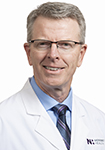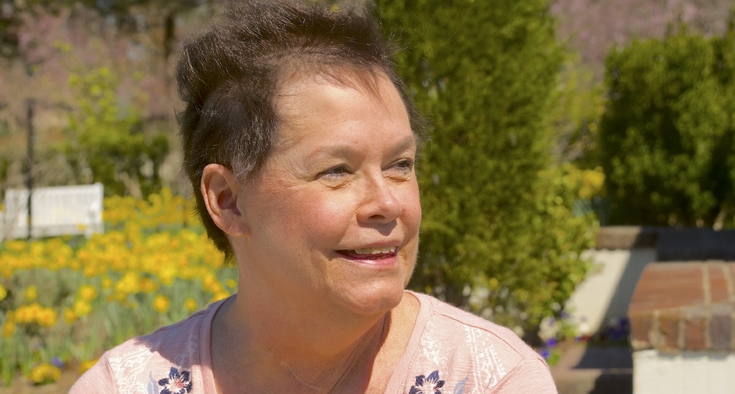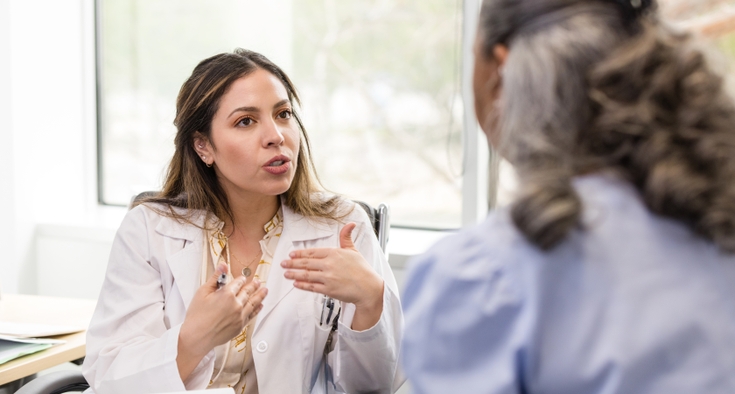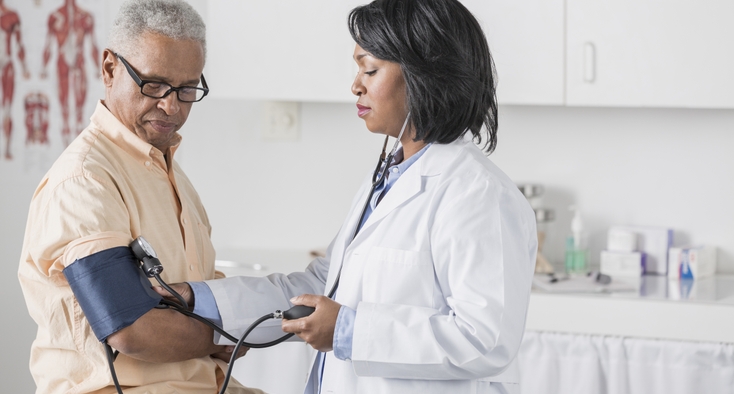One of the most important responsibilities of a general cardiologist’s job? Listening.
“It’s not necessarily what I say, but that I’m sitting down with them,” Dr. Tommy Causey of Novant Health Heart & Vascular Institute - High Point said. “A lot of it is unsaid; it’s the reassurance that we’re going to get to the bottom of their symptoms and determine if there is a problem.”
Heart disease is the most common cause of death for women and men in the U.S. and kills about 700,000 people a year, according to the Centers for Disease Control and Prevention. The general cardiologist surveys the playing field when it comes to matters of the heart and is always looking several steps ahead on behalf of the patient.
At Novant Health, we provide some of the nation's best individualized heart and vascular care, conveniently located, and focused on you.
“If somebody has a history of coronary disease they might be referred to an interventional cardiologist who does stenting” to improve blood flow, Causey said. “But oftentimes the patient can be seen by a general cardiologist more quickly, because I’m in the office every day and have more room to see people.”
In this environment, patients can expect noninvasive testing which focuses on symptoms including chest discomfort and shortness of breath. In Causey’s view, the most dangerous heart problems are the ones that go unidentified. That’s where he comes in.
Here, Causey answers questions about his role and how general cardiologists work with patients.
How do you describe your role versus that of a specialist?
A general cardiologist is sometimes called a noninvasive cardiologist, and is the gatekeeper to getting an evaluation started. I see patients to help sort out if they do or don’t have a heart problem. If they do, I help them figure out the best way to manage it.
Typically, if somebody has had symptoms such as shortness of breath, palpitations or chest discomfort, they’re referred to a general cardiologist. If the patient has atrial fibrillation (irregular heartbeat), they might be sent to a specialist known as an EP cardiologist. I refer patients who need an invasive heart catheterization or heart surgery.
Who are your typical patients? Walk us through a visit.
When a new patient is referred to me from their primary care doctor, there’s a symptom that has them concerned. Occasionally we get people who don’t have any overt symptoms, but they’re worried because of risk factors such as a family history or diabetes.
They want to be seen and reassured that there’s nothing serious going on. (Many insurance companies require a referral from your primary care provider, another reason to schedule a visit each year.)
I can imagine they are almost always feeling nervous.
Exactly. It’s very common the first time somebody comes here that their blood pressure is elevated for that reason. We try not to make rushed judgments on blood-pressure management based on someone's blood pressure when they first show up here. It’s very common to be scared when there’s talk about suspicion of a heart problem.
Best doctors, Amazing Nurses, Remarkable Care.
How do you help calm the patient throughout the evaluation?
The first thing you do is sit down and listen to them. Sometimes in the course of that conversation, we know whether significant heart disease is likely or unlikely. The thinking is, if somebody can exercise briskly for 30 minutes, there is much less chance that they’ve got a serious heart problem.
If somebody is having symptoms, the first test we do is an electrocardiogram (EKG) to show us some clues as to the health of the heart. Sometimes we do an echocardiogram, which is an ultrasound of the heart, or a stress test to see if there is evidence of severe 'blockage' or coronary artery disease. It’s pretty rare that I see somebody and their symptoms are so striking and so limiting and ominous-sounding that the first test we do is a heart catheterization.
What inspired you to pursue cardiology?
When I was growing up, my grandfather had a heart problem. And he passed away from a heart attack when I was a senior in high school. He had 14 grandchildren altogether and got to see only one of them graduate high school. That truly made a big difference with me choosing cardiology as a career.
What do you wish more patients realized about their health?
I wish people knew that being healthy isn’t rocket science. We all need to eat healthy, which largely means we don't need to be eating out and eating salty and fried foods. We need to make sure there’s some color in our diet, including something green and colorful fruits and vegetables. We all need to stay physically active and maintain a healthy weight. Diet is one thing, but if you can't remember the last time you got out and did anything physical, then that’s too long.











